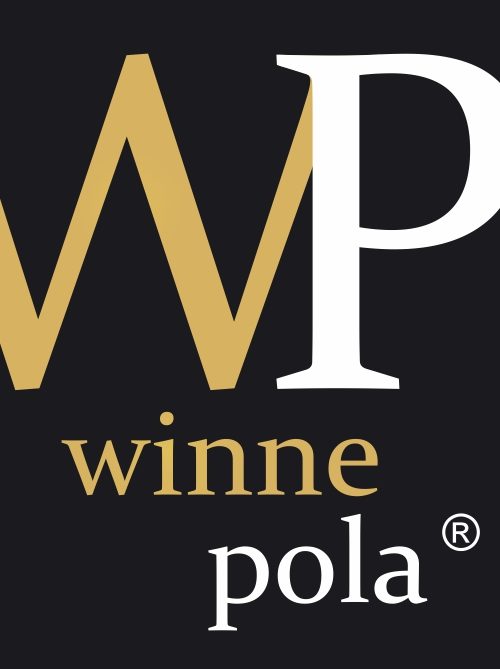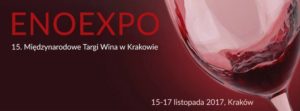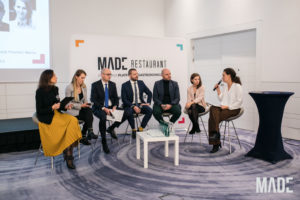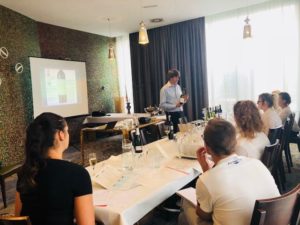What is the function of the wine in the restaurant? You will learn this from the material prepared by our company for the portal Business Restaurants & Catering.
"Wine in the restaurant in recent years has become an increasingly important product from both the restaurateur's and the guest's point of view. About how to build a sustainable growth in wine sales in the restaurant, says Grzegorz Wejer, commercial director at Winne Pola - wine suppliers to the best restaurants.
Grzegorz Wejer
Sales director of Winne Pola - wine suppliers for the best restaurants. He graduated from international marketing management at the University of Professional Education in The Hague (NL). He studied postgraduate studies at Oestrich Winkel (Rheingau) and Durham University (UK). He graduated from the Wine School of Excellence. Is a WSET 3 holder. A consultant and creator of innovative solutions that increase sales efficiency in a restaurant, he advises many renowned restaurants in Poland.
Is wine today an important element in a restaurant?
Certainly yes. However, in my opinion, its function changes. It stops being an addition to the dish, and becomes an indispensable component of a successful visit to the restaurant. Today, we can not look at wine as an additional product, but rather consider it as part of a larger group of factors, the combination of which makes the guest leave the restaurant happy, and what's more - he wants to come back to it, because he spent a nice time.
So we have to pay more attention to wine?
Rather, we must create an idea to sell it to a greater extent. Many restaurateurs focus on finding the best products, and often lack the idea of how these ideal products can be offered to their guests. An idealistic product approach often leads to the creation of extensive wine cards that are designed to meet the expectations of each guest. However, there will always be someone who will ask you for an unprecedented wine, and finally our extensive selection of wines becomes incomplete and ineffective, and we continue to expand it to infinity, and the costs of doing so are enormous.
How to build an idea for sale eg Chardonnay, Merlot, Shiraza, etc.?
The key is to build the concept of wine sales, not the sale of each label separately. We focus, among others on the construction site of aperitif sales tools (sparkling wines), the idea is also how to sell champagne, how to recommend wine to appetizers, so that they can still want wine for the main course. It is important that the standard dessert set is not limited to the dough and coffee, but that the wine stays in it for good.
That means that you need to match our wine list to the menu?
This is just one of the elements and I dare say that the least important. Take the foie gras, the classic combination of which will be Sauternes. If we choose the perfect Sauterne, it does not mean that we will succeed in selling it, because rarely one guest will decide on a bottle of sweet wine to start with. Such examples based on inefficient wine-pairing sales can be multiplied.
What is more important?
The most important is the construction of a comprehensive wine sale concept in the restaurant, which will cause our guests to start their visit with a glass of sparkling wine, then they will buy a glass of wine to the appetizer, order a bottle for the main course, and for many of them to eat dessert without wine will be an unforgivable mistake. Implementation of this comprehensive concept will make the visit to the restaurant very successful, appreciate the delicious cuisine and come back again to have a nice time.
Perhaps it's too good to be able to realize only the concept itself?
Of course, the concept itself is not the only basis for success. But if the concept will be a written instruction, which is the basis for training the waiter staff, then success is almost guaranteed. The condition is to effectively enforce from the staff meticulous implementation of the concept, step by step to skillfully suggest the best solutions for the guest, adding commitment, knowledge and professionalism.
Exactly, there is a "human factor", i.e. unreliable, unpredictable, and nowadays often not fully qualified
Here the most important is the role of the manager. We must start from the beginning, step by step, to educate the waiters, what they are responsible for, what are the important elements of the restaurant puzzle, and what and how to do to ensure the joint success of the restaurant. If you want to work and you do not have the skills, we are able to teach you professional service and make everybody a perfect wine seller and host of our restaurant. However, it should be remembered that this is possible only in a series of well-tailored trainings that are tailored to our "guest manual", supported by a high level of knowledge.
And will not it be better to hire a sommelier?
First of all, if we have a problem with recruiting waiters, then finding a sommelier will certainly be an extremely difficult task, not to say unworkable. Secondly, the majority of sommeliers are "engineers", excellent specialists in products, with extensive specialist knowledge, and not professional salesmen or managers. It is necessary that in the right way, at the right time, they can convince the guest to buy different wines (in accordance with the previously described configuration). Finally, even if we are lucky and we get a raisin, it will not be able to actively sell the whole restaurant at the full hall. Hence, a more effective solution is building wine sales based on the sales model and trained waiter staff. Finally, basing sales on such an important issue as wine on one person is simply risky, because when he decides to leave, the whole business model will be shaken.
Where is the wine card in all this?
A wine list is a very important sales tool, but in the hands of an efficient waiter. It must reflect our approach to wine selection and answer the question why these wines were found in it and why there are no wines in it. Finally, the wine list must be well calculated, i.e. the prices included in it must allow for an optimal margin, i.e. one that will allow you to make a high income from the sale of wine with the appropriate beverage cost. An important element is also the selection of wine for glass sale.
Is it possible to build a sustainable growth in wine sales in a restaurant on all these elements?
If we develop a well-served guest service model in a restaurant and we will verify its effectiveness from time to time, if we step by step we will transform our waiters into professional sellers and if we understand that a wine card is a tool to assist the waiter in selling wine, we will certainly improve restaurant achievements at the level of wine sales. The largest reserves in the growth of wine sales in the restaurant are not dormant, not in the group of guests who comes to the restaurant and is determined for wine, and the role of the waiter is only (or until) advise them in the choice. Success is a skillful conviction of those guests who do not intend to drink wine, that the extension of the wine menu will be an element that will make their stay in the restaurant fully satisfying.
A restaurateur can deal with all this alone?
Yes, but provided he has a professional partner - a wine supplier who will not only offer excellent products, but will actively participate and co-create the idea of selling them. I, together with my team, have the opportunity to advise and jointly build the success of wine sales in over 300 restaurants throughout the country. It is the successes of these restaurants that become the driving force behind Winne Pola and are the basic building blocks of our development and an indispensable ingredient in the pursuit of excellence at every level of activity.„




